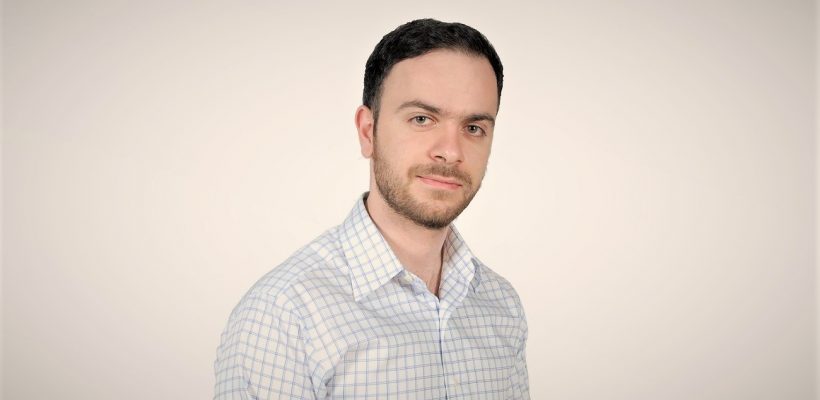
Alumni Success Story: Mesrop Manukyan (LL.M. ‘15) Fulfills a Career in Law
4 min readMesrop Manukyan (LL.M. ‘15) has worked as a legal consultant for a number of state, private, and international organizations, including the National Assembly of Armenia, the United Nations, and Foundation for Armenia Science and Technology (FAST). After earning a master of laws (LL.M.) degree from the American University of Armenia (AUA), he entered the University of Cambridge where he received a second master’s degree. Returning to AUA as a lecturer in 2017, Manukyan has been sharing his knowledge and experience in the field with LL.M. students. In the below interview, he told us about his educational and teaching experience, his current practice as a lawyer, as well as advised current law students how to succeed in the job market.
You have studied in three different universities both in Armenia and abroad. Tell us about your educational experience.
While my studies at Yerevan State University laid the foundation for me to become a lawyer, AUA and the University of Cambridge have had a greater influence on me, professionally.
My experience at AUA was greatly positive, as I was encouraged to think in a non-conventional manner when dealing with courses and assignments. More importantly, I believe that AUA developed my soft skills, such as negotiation and other interpersonal skills, which have proved to be immensely helpful in the long run.
If I were to name the single most important thing that my studies at Cambridge gave me, it is realizing exactly who I want to be and what I want to do. Many of my friends and colleagues from there, who have quite diverse backgrounds and outlooks, have influenced my worldview and helped me think strategically about my career and my life in general.
You received the AUA/MOES scholarship when enrolled in the AUA LL.M. program. How important, in your opinion, is the support AUA provides to its students?
I can speak for myself, that receiving the scholarship meant a lot to me for two main reasons. First, it was a stamp of recognition of all the hard work I had put into my studies. The second and more obvious one is that it truly was financial support, which really mattered to me at the time, as it made possible investing the money I had not in tuition, but in various other training, seminars, and online courses to further advance myself. In short, the scholarship allowed me to invest more in myself. Thus, I believe it serves the same useful purpose not only for me but for every student who receives it.
What does returning to AUA as a lecturer mean to you?
I remember my very first lecture. I felt very insecure and nervous, as I had to be in the shoes of people who I admired before, and those shoes seemed very hard to fill. However, I set one very important goal – I have to be the lecturer that I would want to have back when I was a student. That would be a lecturer who teaches about practice, prepares the students and trains them for entering the legal profession right after each class. A lecturer, who inspires students and serves as a role model. I cannot say whether now I am that person or not. However, I can say that my feeling is that I am definitely on the right track.
As you have seen the two sides of the same coin from both a student and a lecturer’s perspective, what would you identify as some of the advantages of AUA and where is there room for improvement?
AUA has lecturers that are mainly legal practitioners, which is a great advantage. Further, as I mentioned earlier, it develops both hard and soft practical skills for the students.
I believe that AUA has the potential to become the go-to academic institution for the legal profession. To achieve this goal fully, there has to be a bachelor’s degree in law to lay the right foundation for future legal practitioners. Armenia needs a high quality undergraduate legal education that is based on real practice, where graduating students are ready legal professionals.
Tell us about your current practice as a lawyer. What does your job involve?
My main area of practice is technology law, including venture capital and transactional matters related to technology. I have dealt with such matters both during my time as the General Counsel at Foundation for Armenian Science and Technology and OneDapp, as well as in my current private practice.
Along with my main area of practice, I advise private clients, government institutions and international organizations on various legal and policy matters. This includes my work at the Food and Agriculture Organization of the UN, where I served as a legal consultant for two potential legal reforms. The first assignment is meant to tackle the so-called antimicrobial resistance issue in Armenia and is aimed at improving food safety in the country. The other assignment targeted improving the wine production industry in Armenia through the introduction of a grape certification system.
Other areas where I advise current and former clients include international investment law, public administration matters of various government institutions, telecom matters, as well as energy law.
What would you advise the current law students as they prepare to enter the job market?
The single most important advice that I always give my students is to try not to think like a lawyer all the time. Try to be a business person, think business, think commercial matters and your value as a lawyer will skyrocket.
